A colossus from Brahmanbaria
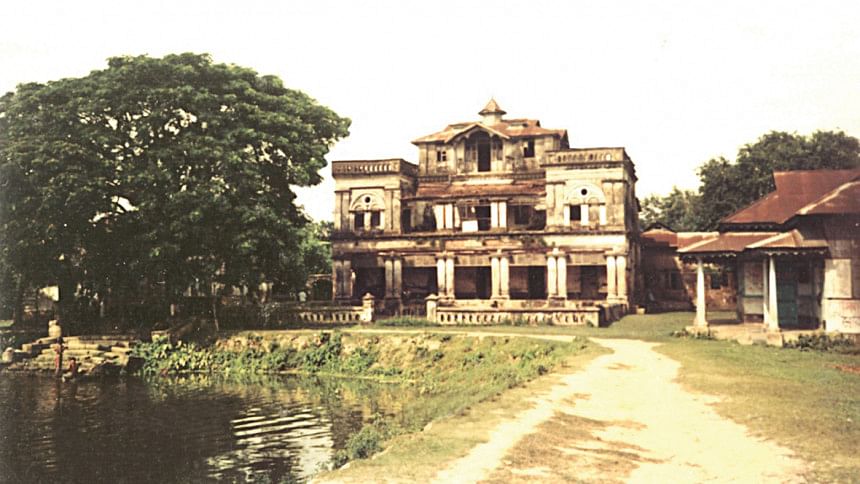
The Honorable Justice Nawab Sir Syed Shamsul Huda, KCIE, an illustrious son of Eastern Bengal (Bangladesh) was born in 1862, in the village of Gokarna, formerly in Comilla then a part of Hill Tipperah, in British India. The village of Gokarna is now incorporated into the Brahmanbaria district. Huda's father, Syed Riazat Ullah, a classical scholar belonged to a zamindar family. He was editor of The Doorbeen, a Persian language weekly journal, started in the early 1880s.
Huda had a brilliant academic record. However, his primary education in - Arabic, Persian, Urdu, Bengali, English and elementary science, was completed at home under the able tutoring and guidance of his father. He was later sent to the Hooghly High Madrasah in Calcutta, to complete his traditional schooling. After that, he obtained a Bachelor of Arts (BA,1884)) and a Bachelor of Law (BL,1886) from the prestigious Presidency College, Calcutta and the Calcutta University, respectively. He further acquired a Masters of Arts (MA, 1889) degree in Persian, privately from the Presidency College. Adequately equipped with formal degrees, complemented further by his unquenchable thirst for knowledge, he became a voracious reader of history, literature, politics and jurisprudence, which made him into a formidable personage of learning and an erudite scholar. Throughout his life he maintained a vast library stocked with an enviable collection of books, including those on criminal and constitutional law. Therefore, he became one of the foremost educated Muslim professional, community/political leader and Jurist of his generation in British India, particularly in regards to Bengal of the early 20th century. The then government of Bengal in its publication of 'Who's Who in India' in 1911, had this to say about Huda, "He is one of the leaders of public opinion in his province, and is in the fore-front of all movements concerning the Mahomedan community." The Statesman of Calcutta wrote: "His charm of manner, tact and impartiality won him the appreciation from all shades of opinion."
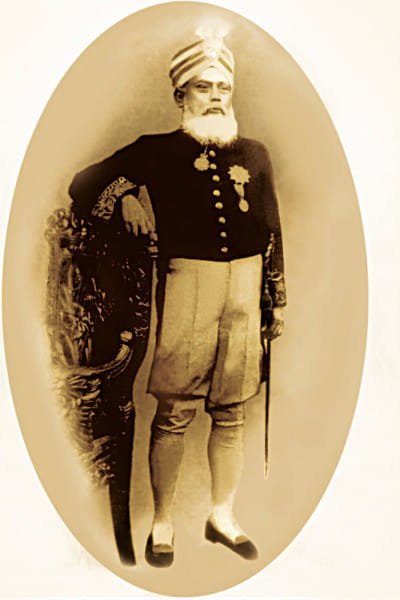
At the beginning of his professional career Huda served for some time as Associate Professor in Arabic and Persian at the renowned Calcutta Madrasah, after which he joined the Calcutta High Court Bar as a lawyer. He became a member of the Senate of the Calcutta University in 1894. In 1899, he took active part in the Calcutta session of Mohammadan Educational Conference. He was also appointed Tagore Professor of Law in 1902. Side by side with his attention to education and law, Huda found means for satisfying his inherited interest in journalism. He financed the Bengali weekly 'Sudhakar'. In addition he bought the Urdu Guide Press and financed 'The Muhammadan Observer', which was the first English weekly in Bengal to be owned by a Muslim.
Huda was an outstanding orator. His impeccable articulation, diction and eloquence of speech, both in the public domain and in the courts of law, were highly praised. The Manchester Guardian in April ,1911, while commenting on the elegant style of Huda's speech said: " Mr. Shamsul Huda, a Mahomedan representative, has a delightfully refined English accent, and delivers short but pointed speeches which could scarcely be improved upon." Similarly, The Times of India in an editorial on 'Notable Public Speakers' remarked: "Another Mahomedan, Mr. Shamsul Huda, has a very agreeable and a pleasant delivery, and one his speeches drew hearty response from the admiring Council."
Huda along with another stalwart of Eastern Bengal, Nawab Bahadur Syed Nawab Ali Chowdhury (1863-1929), were strong proponents of Lord Curzon's Partition of Bengal in 1905. In fact, both of them were advisors to Nawab Salimullah of Dhaka during this crucial period. Huda was subsequently elected to represent the Muslims of Eastern Bengal in the Imperial Legislative Council in 1907, and as a member of the Eastern Bengal Legislative Council in 1908. He also held the office of the Secretary of the Bengal Provincial Muslim League and that of the powerful Bengal Landholder's Association. He was also the President–Elect of the All-India Muslim league in 1912. He became the first Indian Member of the Bengal Executive Council under Lord Carmichael, Governor of Bengal (tenure: 1912-1917), and later under the Earl of Ronaldshay, Governor of Bengal (tenure: 1917-1922). Huda was the second Bengali Muslim Judge of the Calcutta High Court, the first being the Hon'ble Justice Sir Syed Ameer Ali (1849-1928), Bar-at-Law. Huda was elevated to the bench on 8th June, 1917 and resigned on 3rd January 1921, to become the first Indian President of the reformed Bengal Legislative Council under the Montagu-Chelmsford Scheme.
Huda was made a Nawab in 1913, as a mark of personal distinction, awarded the prestigious KCIE in 1916, and designated a Judge of the Calcutta High Court in 1917. He was a great patron of the advancement for Muslin education and worked ceaselessly towards that end. He created special provisions for the accommodation of the needy Muslim students from rural areas of Bengal, particularly those from Eastern Bengal by founding the Carmichael Hostel and establishment of the Elliot Madrasah Hostel in 1898, both in Calcutta. The Partition of Bengal was annulled in 1911, by the King-Emperor George V, at the last Imperial Coronation Durbar held in Delhi. It was subsequently followed by the memorable founding of the University of Dhaka, in 1921. The Earl of Ronaldshay, Governor of Bengal, became its first Chancellor while Sir Shamsul Huda was appointed as Life Member of the university by the governor.
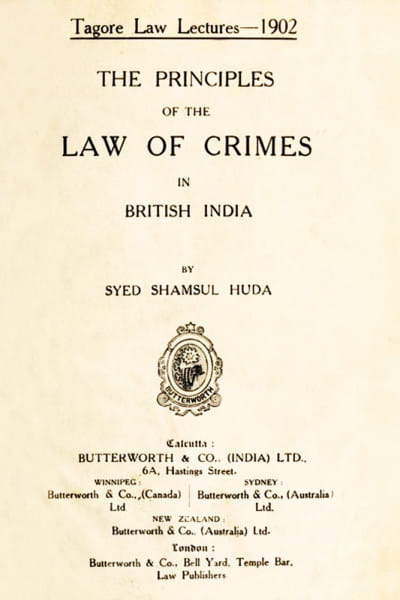
Huda was known for his sterling qualities both of the heart and mind. He was a latitudinarian by temperament. His cordial, democratic and catholicity of spirit hugely attracted all those who came in contact with him. He never displayed any ill- feelings, prejudice or discriminatory behavior even towards those, with whom he disagreed in principle. His arguments were always based on facts, reasoning and fair play. Although a devout Muslim, love of humanity was his true religion. He was forever ready to listen, guide and help all those in need regardless of race, caste, creed, social origin or religion. He held himself to the highest ethical and moral standards in life, which earned him great esteem amongst the British rulers as well as his own countrymen. Generous to a fault and a true nobleman, he was highly respected by his peers. Only a very few Indians in those days rose to such enviable height and eminence by sheer dint of courage, dignity, integrity, forthrightness and above all - meritocracy, Huda being one of those rare names in British India. Even at the higher echelons of the British Raj, his advice and valuable suggestions were carefully listened to, some of which were markedly anti-British.
Lord Carmichael, the then governor of Bengal, enjoyed a close working relationship with Huda, a colleague, friend and one who selflessly helped the governor carry out his many obligations. On his retirement speech as the Governor of Bengal in 1917, Carmichael paid glowing tributes for the assistance and sagacity of Huda by saying , "I have had near me as my colleague throughout five years the Hon. Nawab Sir Syed Sham-ul-Huda, KCIE. At my Council Board, the Nawab Sahib has always been a fearless critic of the government measures and though perfectly fair to all, a strong advocate of Mohamedan interests. But not only has he been a valued colleague, he has also been to me a most faithful and sympathetic friend, ever ready to help me and to teach me to understand the varied problems of Bengal from the point of view of those whom he represents."
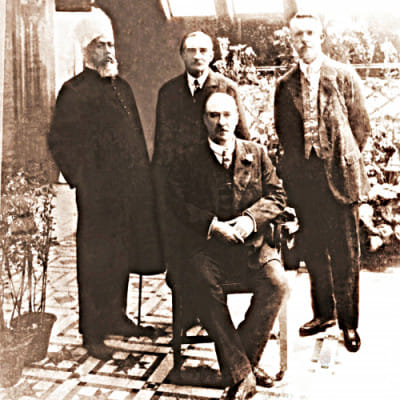
There are many complimentary remarks about Huda's towering personality, in newspapers, magazines and personal reminiscences of both British and Indian luminaries of those days, who had the privilege of knowing or working with him. On his death, there were profuse eulogies. It is not possible to include them all here due to space constraints. However, just a choicest few are shared with the readers. The eminent Rai Jogendranath Gosh said, " Strong, fair and impartial, Sir Syed Shamsul Huda steered straight our frail bark in the new unknown sea of political freedom buffeted by storms of violent and non-violent faction with singular ability… in all walks of life he displayed rare ability, fairness and independence." Sher-e-Bangla A K Fazlul Haq of Bengal wrote, "He has been a prominent figure in Indian political life for a number of years and during the last ten years he had been filling some of the highest offices under the Crown with exceptional tact and ability". A prominent lawyer of the Calcutta High Court, Tarok-Chand Chakraborty, wrote in The Statesman of Calcutta , "his heart knew not the barriers of race and creed. No man ever had so many intimate friends among the members of his own profession, and friendship of Sir Shamsul Huda did not mean the mere absence of enmity or the exchange of greetings." The Maharajadhiraja Bahadur of Burdwan Sir Bijay Chand Mahtab, a former colleague of Huda in the Bengal Legislative Council, and the biggest landholder in British India, while eulogising Huda said, "the Nawab was first a Bengali and then a Muslim, and was above favoritism or nepotism. He never unduly favored a Muslim or even his own relatives." Babu Surendranath Roy wrote, " The late Nawab Sahib was not a sectarian in any sense of the word. He never made any distinction between Hindus and Muhammadans. He was devoid of all class hatred. He was never unreasonable in his demands for the rights and claims of his co-religionists. In fact he was a gentleman in the highest sense of the word."
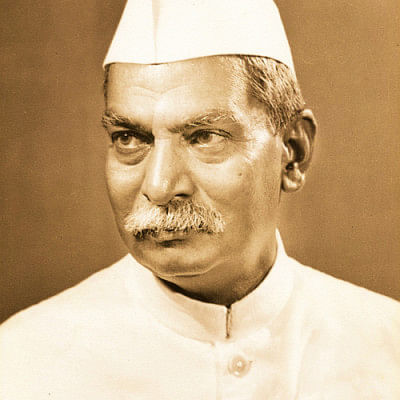
Perhaps, the most befitting tribute to the magnanimity of Huda worthy of special mention, came from his onetime 'articled clerk', Dr Rajendra Prasad (1884-1963), the first President of the Republic of India. In Calcutta, Prasad then a struggling young man used to live far away from Huda's residence. Therefore, with great difficulty he had to travel to Huda's house early in the morning to arrange relevant papers for Huda's court cases, before proceeding to the High Court. Huda would always take Prasad along with him in his own car to the court. Subsequently, to ease Prasad's daily rigors of commuting, Huda arranged for Prasad to lodge in his own house, providing him with a separate room and kitchen, since Prasad was a conservative, upper caste Hindu. In his autobiography Prasad mentions a rare example of Huda's conscientiousness and wrote, "it will not be out of place to mention here a small incident. While I was living with him, we had the festival of Bakr-Id. The area in which Khan Bahadur (later Nawab) lived was predominantly Muslim and I feared that in his house or in the neighbourhood a cow might be slaughtered for sacrifice. So I thought it would be best if I made myself scarce for a few days. So, on the eve of the festival, I quietly slipped out and returned only four days later. Khan Bahadur Huda asked me where I had gone and I answered that I had been to a friend". On hearing this, Huda immediately retorted, " I know you went away because of Bakr-Id. You probably wanted to avoid being present during a cow sacrifice. Have you not been unfair to me? You are my articled clerk. I have several Hindu servants in my house, the gardener and the servant who tend to my cow are all Hindus. Do you think I am so callous as not to think of their sentiments, not to speak of yours? Could I have given pain to them? You should have asked me before leaving. In view of the Hindu servants in my house cow sacrifice is never done here". A deeply embarrassed, Rajendra Prasad, with head bowed profusely apologized to his mentor.
The Honorable Justice Nawab Sir Syed Shamsul Huda, KCIE, passed away on 14 October, 1922 and was buried at the Tiljala municipal graveyard, Calcutta. Incidentally, Huda was a great-uncle of another distinguished son of the soil, Sir Fazle Hasan Abed (1936-2019), KCMG, founder of BRAC, a globally reputed international developmental organization based in Bangladesh.
Waqar A Khan is the Founder of The Bangladesh Forum for Heritage Studies.

 For all latest news, follow The Daily Star's Google News channel.
For all latest news, follow The Daily Star's Google News channel. 



Comments